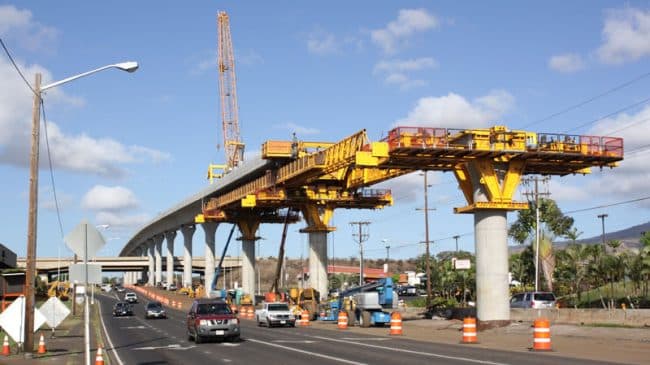RECOMMENDATION FOR THE CONGRESS
Grant user-friendly tolling flexibility for Interstate highway reconstruction
Issue: America’s Interstate highways are reaching the end of their 50-year design life, and will all need to be reconstructed over the next several decades. Many corridors-especially those that are primary truck routes-will need additional lanes. The estimated cost of reconstruction and prudent widening is nearly $1 trillion-and no funding source exists for this purpose. Urban Interstates experience chronic congestion that is not being systematically addressed.
Action Requested: Expand the three-state Interstate System Reconstruction and Rehabilitation Pilot Program to all 50 states and allow participating states to use it to reconstruct all Interstate highways in their states, not just one. To ensure the support of highway users, provide stronger protections to ensure that the tolls are pure user fees that can be used only for the capital and operating costs of the rebuilt rural and urban Interstates. These protections should include (a) statutory limitation on use of the toll revenues to the rural and urban Interstates only, (b) beginning tolling only after an Interstate segment has been rebuilt, (c) requiring that tolling be all-electronic and interoperable nationwide, and (d) granting rebates of state fuel taxes to Interstate toll-payers for the miles driven on the newly tolled and rebuilt Interstates.
Justification: The current three-state pilot program is deficient in that it allows a state to hold onto its slot without using it, precluding other states from going forward. And by limiting toll-financed reconstruction to a single corridor, it creates geographic inequity among highway users and precludes a responsible state DOT from offering a 20-year plan under which all of its Interstates will be reconstructed using toll financing. The highway user protections are critically important, given the well-justified skepticism of highway user groups based on a history of some states using toll road revenues for other transportation purposes and even “economic development.” All highway user groups endorse the users-pay/users-benefit principle, but they will only support toll-financed reconstruction if the tolls are guaranteed to be pure user fees, not a combination of user-fee and general transportation tax.
Benefits and Costs of the Change: Since there is no identified source of funding for the $1 trillion cost of Interstate reconstruction, a major benefit of this change is to provide such a funding source, available to states that comply with the user-friendly provisions. Since a per-mile toll is a mileage-based user fee, if all 50 states opted in, that would convert 25% of all vehicle-miles of travel to mileage-based user fees, an important first step toward replacing per-gallon fuel taxes. If the toll rates were limited to covering the capital and operating costs of the rebuilt system, highway users would pay somewhat more than they do now to use the Interstates, but would receive much better services.
Likely Support: Auto clubs, state DOTs, and taxpayer groups
Likely Opposition: Railroads, Alliance for Toll-Free Interstates

